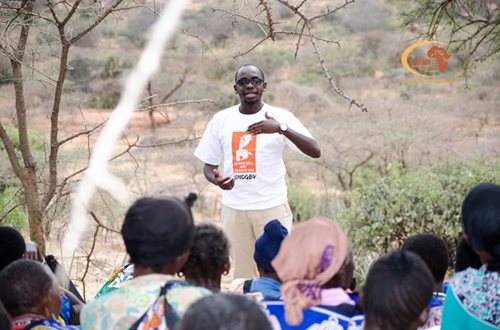Violence against aid workers effects not only humanitarian workers but can also prevent vital humanitarian aid reaching those most in need. RedR UK's 'Safety in Emergencies’ training course is designed for humanitarian staff working in hostile settings, helping to increase their personal security and the resilience of the projects that they deliver.
 Ian Mwangi (right) is an assistant project officer for maternal and new-born health for The Centre for Rights Education and Awareness (CREAW) in Isiolo, Kenya where he has been working for the past three years. In 2017 Ian attended RedR’s ‘Personal Safety in Emergencies’ training course in Nairobi, funded by XL Caitlin and designed for humanitarian staff working in hostile settings. Ian explains why he decided to take part in the training:
Ian Mwangi (right) is an assistant project officer for maternal and new-born health for The Centre for Rights Education and Awareness (CREAW) in Isiolo, Kenya where he has been working for the past three years. In 2017 Ian attended RedR’s ‘Personal Safety in Emergencies’ training course in Nairobi, funded by XL Caitlin and designed for humanitarian staff working in hostile settings. Ian explains why he decided to take part in the training:
"We have instances of insecurity where I work, there is quite a lot that goes on. I decided to go on the RedR course because the issue of insecurity was really affecting us. Before I applied for the training, one of our ambulances was attacked by bandits, so it actually increased the urgency for me to do that training and come and share it with members of staff."
Through classroom sessions and an intense day-long simulation exercise, RedR’s security training aims to help participants identify and mitigate threats in their operating environment - keeping them safe, and ensuring they can continue their life-saving work. Ian shares his experience of the training:
"I liked the practical nature of the training. It’s not all about theories that you learn in the classroom; there was a balance between having theory on the first few days and then actually going and practicing it in the field. The course place on a military instillation and was led by someone from the military, so that for me was quite different. We took part in training exercises including kidnapping, carjacking and dealing with landmines and that was really good because it helped me to join the dots between the theory and the practical."